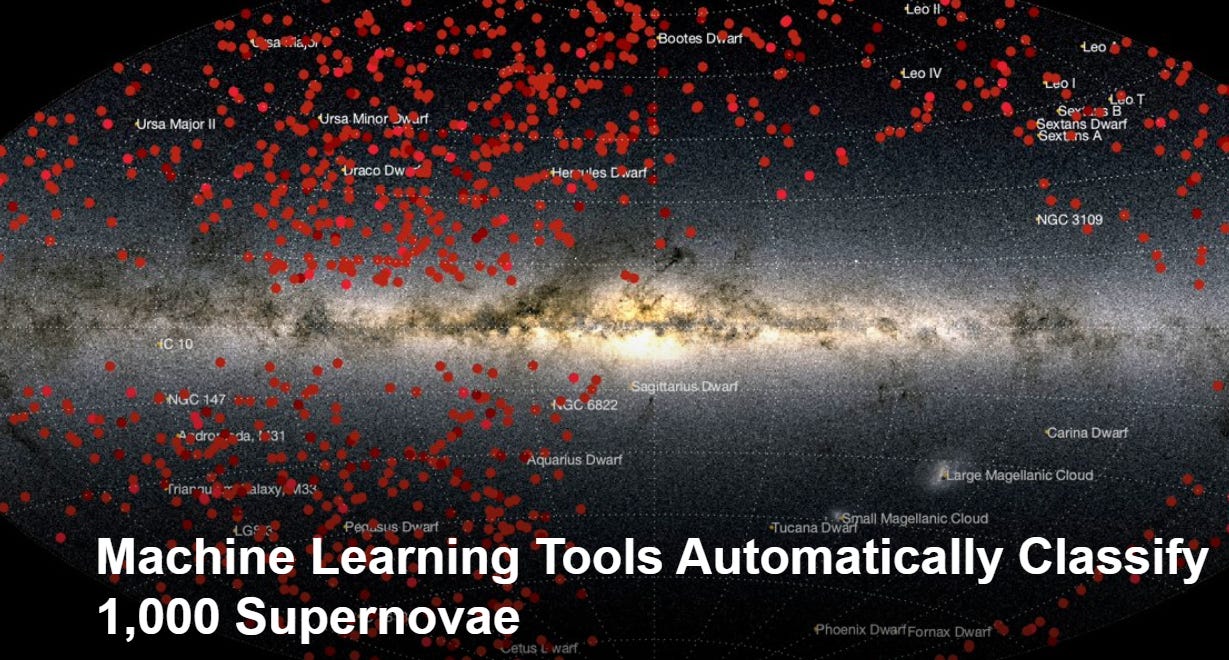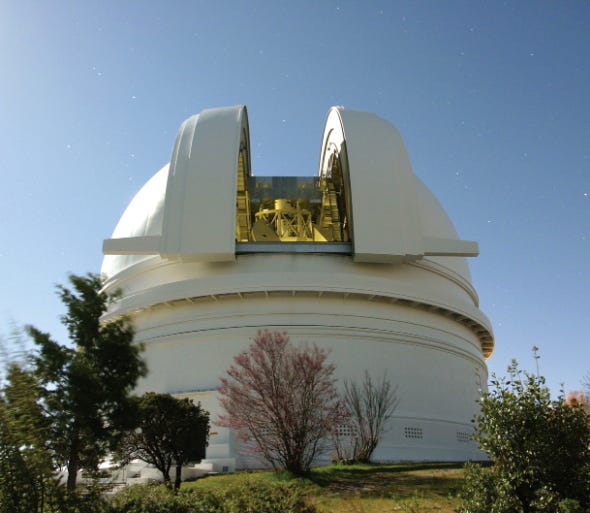A.I. is Automating Astronomical Discoveries
Deep learning tools classify over 1,000 Supernova
Image source: CalTech.
Hey Everyone,
In any given week A.I. is augmenting the science we do from spotting Breast Cancer better to finding ‘ghost’ ancestors we never knew we had. How machine learning is improving science and making things go faster and opening up new possibilities I’ve noticed is very pronounced in astronomy.
How so? You may ask.
This past week we learned that SNIascore, a machine learning algorithm developed by astronomers from the Zwicky Transient Facility at Caltech, has just classified and reported 1000 Type Ia supernovae to astronomers around the world completely autonomously with no human intervention.
This animation shows the location of the supernovae and when they were classified. The bottom right side is empty because this is the part of the night sky the telescope cannot observe.
SNIascore, a deep-learning-based method for spectroscopic classification of thermonuclear supernovae (SNe Ia) based on very low-resolution (R ∼ 100) data.
The goal of SNIascore is fully automated classification of SNe Ia with a very low false-positive rate (FPR) so that human intervention can be greatly reduced in large-scale SN classification efforts, such as that undertaken by the public Zwicky Transient Facility (ZTF) Bright Transient Survey (BTS). They utilize a recurrent neural network (RNN) architecture with a combination of bidirectional long short-term memory and gated recurrent unit layers.
Astronomy is therefore being impacted on the field by deep-learning tools. I find A.I.’s growing impact on science and discovery an impressive case study and one of the more inspirational.
Astronomers at Caltech have used a machine learning algorithm to classify 1,000 supernovae completely autonomously. The algorithm was applied to data captured by the Zwicky Transient Facility, or ZTF, a sky survey instrument based at Caltech's Palomar Observatory.




